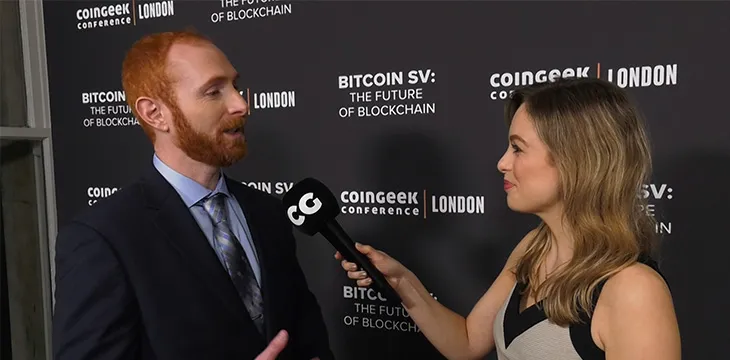|
Getting your Trinity Audio player ready...
|
In all sports, there is always the chance of someone cheating—something the Houston Astros of MLB know all about. Especially for iGaming and esports, there are limited ways to mitigate fraud on both the operator and the client sides. One company focused on the esports industry, Kronoverse, is looking to change this by building on the inherently transparent nature of the blockchain, and is poised to revolutionize how virtual gaming competitions are operated and managed. Adam Kling, the CEO of Kronoverse, led a presentation during CoinGeek London on the state of esports and how Bitcoin SV (BSV) is helping shape the future of the business.
In 2019, the esports industry saw $1 billion in revenue and continues to grow at about 42% each year. Competitions in popular games such as Fortnite and PlayerUnknown’s Battlegrounds (PUBG) handed out more than $200 million in prize money. The amount of cash being handed out has attracted a number of cheaters as the industry isn’t completely equipped to uncover the fraud. This is where putting games on the blockchain can ultimately eliminate cheating and provide better transparency, as well as other features, that the current gaming platforms are not able to offer.
Kronoverse previously launched CryptoFights as its foray into blockchain-based gaming, initially choosing the Ethereum network as its foundation. However, it didn’t take long for the company to realize that the blockchain would be too limited, too slow and too expensive to maintain large-scale growth, and the game now resides on the BSV network since it is the only one that can offer on-chain massive scaling.
As a result, CryptoFights is an example of what the esports gaming industry will look like in the future. It allows greater monetization of development and in-game characteristics, and also gives the entire esports community the ability to monitor the games for cheating. Since transparency and full disclosure are integral components of the blockchain, bypassing controls to scam the system become a thing of the past.
Using BSV as a basis for esports has other advantages, as well. In many video games, players have the ability to purchase in-game items, such as swords, armor and other special characteristics. The trading of these items has become a multimillion-dollar industry, and, since the games are on the blockchain, so is the storage of these items. True ownership is verifiable and permanently recorded and, should a game developer shut down, the items remain intact, allowing them to retain their value.
Seemingly acknowledging the power of incorporating blockchain into esports, one of the largest companies in the space just signed a partnership with Kronoverse. ESL is now working with Kling and the rest of the team to help develop and scale CryptoFights and bring it to the global stage.
After taking the stage to discuss the blockchain integration with esports, Kling met up with CoinGeek’s Hannah Jackson to provide a few more details of the company’s plans. Kronoverse is integrating BSV into the application layer of the company to handle everything related to the games it offers, a plan that has been greatly facilitated by the network’s Genesis upgrade. As part of the intrinsic capabilities of all games built on the blockchain, CryptoFights is showing how easy it is for everyone to ensure transparency and integrity by being able to drill into the development and read the actual code and the rules of the game. In the end, this level of transparency will enable eSports to grow to overcome integrity issues currently found in conventional alternatives.

 07-04-2025
07-04-2025 





